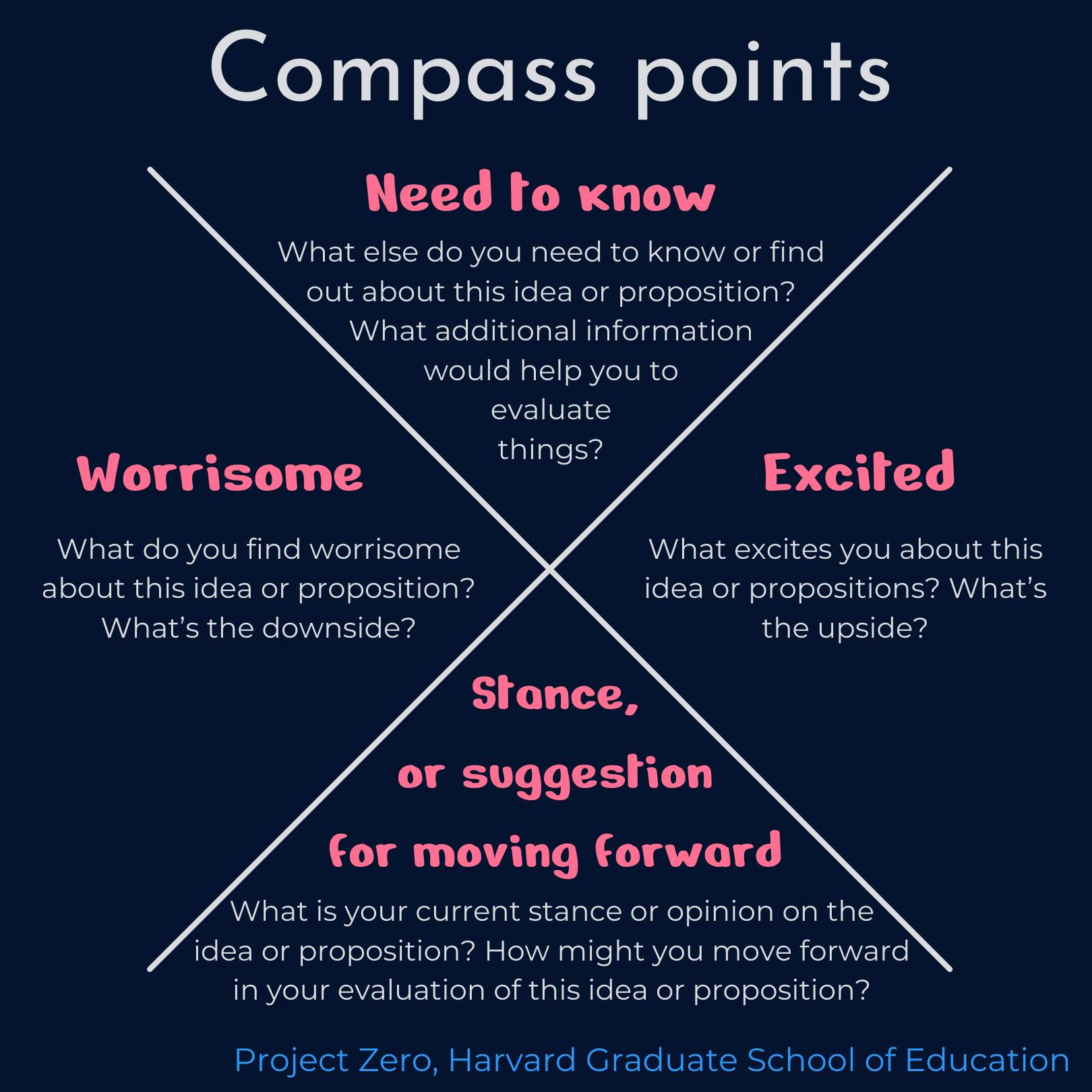Harvard Thinking explores the profound yet often overlooked questions surrounding our capacity for change and personal growth. This engaging dialogue draws from the insights of the Harvard Study of Adult Development, highlighting the psychology of change that shapes our lives at every stage. As we delve into the intricacies of bias and self-improvement, the podcast encourages listeners to embrace change rather than resist it, recognizing that it is a fundamental aspect of human existence. Notably, experts emphasize that whether we consciously intend to change or find ourselves evolving due to life’s circumstances, the potential for positive transformation lies within us. Join the conversation as we unravel the complexities of change and discover how to thrive amidst life’s inevitable transitions.
The concept of Harvard Thinking resonates with the idea that individuals possess an intrinsic ability to adapt and grow over their lifetimes. In this discussion, we examine various perspectives on the psychological underpinnings of transformation and how life experiences shape our realities. By addressing themes like the reluctance to embrace change and the emotional responses it can invoke, listeners are prompted to rethink their notions of self-improvement. This exploration touches upon the considerable advancements in understanding human behavior, making it clear that both intentional and unintentional changes play significant roles in our personal journeys. Together, let’s navigate through these enlightening views on psychological development and the human capacity for adaptation.
Understanding the Psychology of Change
The psychology of change is a fascinating and complex subject that encompasses the various ways individuals respond to shifts in their lives. Change can be initiated by external factors, such as life events or societal trends, or it can come from within, often shaped by personal ambitions and desires. Central to understanding this psychological aspect is recognizing that change is not just a linear process; it involves a myriad of emotions, cognitive biases, and coping strategies. An essential part of this discussion is the idea that our perception of change is often influenced by our preconceived notions about permanence and stability in life.
Research in the field of psychology emphasizes that individuals are capable of significant change at any stage of life, refuting the myth that transformation becomes unattainable as one ages. Notably, the Harvard Study of Adult Development suggests that our happiness and well-being are closely tied to our ability to adapt and embrace change, underscoring the dynamic nature of human psychology. The study reveals that people can experience profound shifts in perspective and behavior in response to life events, emphasizing how resilience and adaptability are critical components of the human experience.
The Role of Harvard Thinking in Embracing Change
Harvard Thinking provides an insightful framework for understanding and embracing change, particularly through its influential studies on adult development. These studies, led by experts such as Robert Waldinger, take a deep dive into how individuals evolve in their psychological makeup over time. One core principle derived from these investigations is that change is a natural part of life, and resisting it only leads to greater suffering, as highlighted by Waldinger’s notion that we must ‘let go or be dragged.’ This philosophy promotes the idea of accepting change as an integral part of our existence, allowing us to thrive rather than merely survive.
Moreover, the podcast delves into the influence of disillusionment on personal growth, suggesting that while negative experiences can instill bitterness and withdrawal, they also hold the potential for deeper understanding and transformation. By fostering a mindset rooted in Harvard Thinking, individuals are encouraged to view challenges as opportunities for self-improvement and development. This reframing of perspective is crucial, as it equips people with the tools to navigate life’s inevitable changes and emerge stronger and more resilient.
Embracing Change for Personal Growth
Embracing change is pivotal for personal growth and self-improvement. A critical mindset shift is required to view change positively rather than as a source of anxiety or fear. This mindset encourages individuals to step outside their comfort zones, engage with new experiences, and ultimately enhance their quality of life. As illustrated by Mahzarin Banaji’s research on implicit biases, our views and beliefs can evolve over time as we expose ourselves to diverse perspectives and experiences. This adaptability is essential for fostering personal growth.
The implications of embracing change are profound, as they extend into various facets of life, including relationships, career, and personal aspirations. By actively seeking transformation, individuals often find renewed purpose and direction, which can catalyze further growth. It’s essential to remember that while the journey of change may be daunting, the fruits of personal development—such as greater empathy, improved relationships, and a more profound understanding of oneself—can yield significant happiness and fulfillment.
Bias and the Journey of Self-Improvement
Bias plays a critical role in our journey toward self-improvement, shaping how we perceive ourselves and the changes we wish to undertake. Cognitive biases, such as the negativity bias, often hinder our ability to see the positive outcomes that can arise from making changes in our lives. For instance, individuals may focus excessively on their shortcomings or past failures, overlooking the successes and progress they’ve made. Understanding these biases is essential in the context of behavioral psychology, where awareness can lead to more mindful decision-making and a greater willingness to embrace change.
Moreover, studies reveal that acknowledging and addressing our biases can significantly enhance our self-improvement efforts. By consciously working to counteract the biases that cloud our judgment, individuals can cultivate a more balanced self-view, making it easier to accept and implement changes for the better. This process not only leads to personal growth but also fosters a more nuanced understanding of the complexity of human behavior and relationships.
Recognizing Change Across the Lifespan
The concept of change is particularly significant when we consider its impact across the lifespan. As highlighted in the ongoing Harvard Study of Adult Development, change is not confined to the early stages of life; rather, it continues to occur throughout adulthood into old age. Various life transitions—such as career changes, parenthood, and shifts in relationships—serve as catalysts that promote continual development, revealing how adaptable human beings can be. As we age, it’s vital to recognize the potential for growth at every stage, making it imperative to maintain a mindset open to change.
Furthermore, understanding how different life stages influence our capacity for change enables us to approach each new phase with curiosity and resilience. Those who remain committed to personal growth can find ways to thrive despite adversity, ultimately contributing to a more fulfilling and enriched life experience. Acknowledging the inevitability of change can transform our apprehension into excitement, allowing us to navigate life’s challenges more skillfully.
The Intersection of Disillusionment and Growth
Disillusionment is an often-overlooked factor that can significantly impact the process of change and personal growth. Individuals frequently respond to feelings of disillusionment in various ways, from withdrawal and cynicism to greater compassion and understanding of the world. Recognizing the role of disillusionment in shaping our perspectives is crucial, as it can challenge our beliefs and motivate us to adopt healthier, more constructive attitudes. Rather than shying away from disillusionment, embracing it can lead to profound growth and emotional resilience.
Moreover, disillusionment can enhance our understanding of life’s complexities, compelling us to reevaluate our priorities and goals. By fostering a deeper understanding of reality, individuals can adapt their aspirations to align with the ever-changing nature of their experiences. Embracing disillusionment, therefore, becomes a powerful catalyst for fostering growth and transformation, ultimately leading to a more meaningful and fulfilling life journey.
Aging and the Dynamics of Change
Aging often brings about an array of changes, both physically and psychologically. As individuals transition through various life stages, the awareness of mortality and the fleeting nature of time can profoundly influence their mindsets and motivations. Robert Waldinger’s research highlights that as we age, our perception of life’s impermanence often leads to a reevaluation of priorities and values, prompting further changes and adaptations that can significantly impact well-being. Understanding the dynamics of change as we age allows us to frame these transformations in a positive light, celebrating them as opportunities for growth.
Additionally, aging provides a unique perspective on the importance of cultivating relationships and emotional connections. As discussed in the Harvard Study of Adult Development, the quality of our relationships significantly influences our happiness and overall well-being. Fostering meaningful connections and embracing the changes that come with aging can lead to greater fulfillment, serving as a crucial reminder that change, even in later life, can be a source of personal growth and enrichment.
Sociocultural Influences on Change
Sociocultural influences play a pivotal role in shaping how we perceive and respond to change. Cultural values, social norms, and community beliefs often dictate our willingness to embrace transformation, impacting not just individual behaviors but collective societal attitudes toward change. For instance, certain cultures may prioritize stability and tradition, creating environments resistant to change, while others foster a more progressive ethos that encourages flexibility and adaptability. This cultural lens is instrumental in understanding the diversity of human experiences as it relates to change and growth.
Moreover, societal pressures can significantly impact individuals’ self-perception and their ability to adapt to new circumstances. Awareness of these sociocultural dynamics can empower individuals to navigate changes more effectively, encouraging a more profound personal growth journey. By recognizing the broader context in which change occurs, individuals can feel a sense of agency, enabling them to challenge societal norms and pursue a more authentic path toward self-improvement and fulfillment.
The Future of Self-Improvement and Change
Looking ahead, the future of self-improvement and change appears bright, as more individuals recognize the necessity of adaptability in an increasingly dynamic world. The conversation around self-improvement is evolving, moving away from fixed notions of identity and focusing on the potential for growth through continuous learning and adaptation. As the insights from the Harvard Study of Adult Development reveal, embracing change can lead to a more profound understanding of oneself and an enriched life experience.
Additionally, the growing focus on mental health and emotional well-being fosters an environment conducive to change. As society becomes more aware of the importance of emotional intelligence and resilience, individuals are encouraged to cultivate these skills, making them better equipped to navigate challenges and pursue meaningful transformation. The interplay between personal growth, psychology of change, and broader societal shifts will undoubtedly continue to shape the landscape of self-improvement in the years to come.
Frequently Asked Questions
What is Harvard Thinking and how does it relate to change and personal growth?
Harvard Thinking is a podcast that explores the psychology of change, emphasizing the importance of adaptability and personal growth. Experts discuss how embracing change can lead to increased happiness and well-being, drawing insights from the Harvard Study of Adult Development.
Can individuals truly change, according to the psychology of change discussed in Harvard Thinking?
Yes, individuals can change significantly at almost any stage of life. The podcast highlights that change is not only possible but also a natural part of human development, as supported by findings from the Harvard Study of Adult Development.
How does the Harvard Study of Adult Development contribute to our understanding of change in adulthood?
The Harvard Study of Adult Development provides extensive research on human happiness and well-being over 80 years, demonstrating that individuals continue to grow and evolve psychologically and biologically throughout adulthood.
What role do biases play in self-improvement as discussed in the context of Harvard Thinking?
Biases can impact our perception of self-improvement, often hindering our ability to embrace change. Experts from Harvard Thinking stress the importance of recognizing and overcoming these biases to foster personal growth.
How can one embrace change according to the insights from Harvard Thinking?
Embracing change involves developing a more encompassing understanding of reality, as discussed in Harvard Thinking. By letting go of resistance and viewing change as a constant, individuals can thrive and improve their overall well-being.
What are some psychological factors that influence an individual’s adaptability to change, based on Harvard Thinking?
Psychological factors include temperament, experiences with disillusionment, and inherent biases. Harvard Thinking suggests that these elements can shape our willingness to change and adapt to new circumstances.
How might understanding the psychology of change help someone facing negative experiences?
Understanding the psychology of change can empower individuals to respond positively to negative experiences, potentially leading to growth rather than withdrawal. Harvard Thinking emphasizes resilience and the capacity to transform disillusionment into thriving.
What is the significance of self-acceptance in the context of change and psychological growth?
Self-acceptance is crucial as it enables individuals to recognize their flaws while also striving for improvement. The balance between self-acceptance and pursuit of change is a key theme in the discussions from Harvard Thinking.
How has the cultural perspective on change evolved, according to the discussions in Harvard Thinking?
The cultural perspective on change has shifted towards recognizing the importance of continuous growth and adaptability, moving away from the idea that change is limited to youth. Harvard Thinking promotes the idea that change is a lifelong process.
What strategies can individuals employ to foster a resilient mindset towards change as per the insights from Harvard Thinking?
Strategies include maintaining an open mindset, challenging biases, and using personal experiences as learning opportunities. The discussions in Harvard Thinking advocate for actively engaging with change to enhance adaptability and personal growth.
| Key Points | Description |
|---|---|
| Change is Inevitable | Experts agree that change is a constant part of life, whether we embrace it or not. |
| Resistance to Change | Resistance to change often leads to suffering, indicating that letting go is crucial for personal growth. |
| Pursuing Change | Change can be intentional, such as through goal-setting, or subconscious, influenced by life experiences. |
| Disillusionment | Disillusionment can lead to bitterness or a broader understanding of reality, impacting our capacity for change. |
| Implicit Bias | Even biases can change as we are exposed to new circumstances, stressing the importance of personal agency. |
| Cultural Context | Differences in cultures can influence how individuals respond to change, especially in terms of political and social norms. |
| Self-Acceptance vs Improvement | Balancing the desire for self-improvement with self-acceptance is vital for emotional well-being. |
Summary
Harvard Thinking promotes the idea that while change is a natural part of life, it often comes with complexities that can either hinder or enhance personal growth. The discussions from experts highlight that our resistance to change can lead to suffering, underscoring the necessity to embrace it for a fulfilling life. Additionally, recognizing the power of our implicit biases and the cultural influences on our perceptions of change can lead to better self-understanding and interpersonal relationships. Thus, navigating change is not merely about the act itself but understanding its profound impact on who we are.




